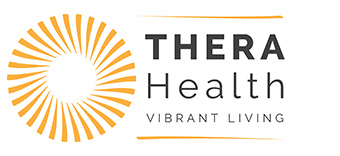Highlights
- Supplementation with EPA and DHA during pregnancy can help mitigate the incidence of allergies and asthma in later childhood
- EPA and DHA can promote attention and reduce symptoms of hyperactivity and impulsiveness in childhood and adolescence
- Higher levels of omega-3s during gestation and later development are linked to greater cognitive performance across childhood
While the significance of omega-3 fatty acids EPA and DHA for early brain and retinal development are well-established, emerging research suggests that omega-3 levels during gestation and childhood may have important health implications beyond early vision and cognition (1-6). To gain a better understanding of this research, paediatric specialist Dr. Vandana Bhide gives an overview of Omega 3’s for children of the most promising research linking omega-3s to children’s health.
Omega 3’s: What are they?
“Omega-3 fatty acids are polyunsaturated, which usually means healthy fats,” Dr Bhide explains. “They are also conditionally essential nutrients. This means that because humans do not make omega-3 fatty acids, they need to be taken in through our diet.”
She then clarifies between several different types of omega-3s. “We have ALA, DHA, and EPA—those are the most important ones. However, when we talk about children’s health, we are primarily going to be talking about DHA. EPA is also very important, but in general, DHA is the omega-3 that we’re most concerned about during childhood.”
Omega 3’s and Immune Health
According to Dr. Bhide, today’s standard western diet—rich in omega-6 fatty acids and low in omega-3 sources—may be leading to increased health conditions. “We know there is an increased incidence of allergies over time,” she explains, “and a lot of people think it’s because of the increased levels of pro-inflammatory omega-6 fatty acids in our diets.” Fortunately, she points out, emerging research indicates that omega-3 supplementation during pregnancy can help mitigate the incidence of immune-mediated conditions in later childhood.
One such study found that children whose mothers took 2-4 grams of DHA during pregnancy were 30% less likely to develop symptoms of asthma than children whose mothers did not take DHA (1).
Similarly, a different study found that children born to women who took 4 grams of EPA and DHA during pregnancy were significantly less likely to develop mild, moderate, or severe symptoms of asthma than children whose mothers did not (2).
“We don’t know exactly how to manipulate it, but the hope is that increasing omega-3 fatty acid intake during pregnancy can help modulate the foetal immune system. So not only is supplementation beneficial for infant cognition and brain development, but also for immune health.”
Omega 3’s and Neurobehavioural Health
Another area that Dr. Bhide believes omega-3s may play an important role is children’s neurobehavioural functioning—more specifically, for addressing symptoms of inattention, hyperactivity, and impulsiveness. For example, a recent randomised control trial showed that school-aged children struggling with hyperactivity and inattention saw significant improvements in cognitive performance, attention, and hyperactivity after supplementation with EPA and DHA, whereas children not receiving supplementation saw no changes (3).
Another study conducted with school-aged boys found that supplementing with EPA and DHA led to a significant reduction in symptoms of inattention.
And importantly, these positive effects were observed in both healthy controls and subjects with a clinical history of inattention, suggesting that EPA and DHA can support attention in childhood, regardless of neurobehavioral status (4).
So, does this mean that omega-3s are the cure-all for hyperactivity and inattention? According to the doctor, not quite. “Now I don’t think we can use just omega-3 fatty acids by themselves to treat symptoms of inattention and hyperactivity. However, there are many families that feel uncomfortable using medications, so for those families, I think that supplementation with omega-3 fatty acids is going to be beneficial.”
Omega 3’s and Cognitive Function
Still another area showing impressive benefits as a result of omega-3 supplementation is children’s cognition. Although the importance of omega-3 fatty acids for infant cognition is well-established, Dr. Bhide is newly enthused by studies showing that omega-3s can support cognitive health well beyond the first two years of development. “There is a growing body of evidence for the effects of omega-3s on childhood neurodevelopment and cognition up to the age of 5, and in some cases, the teenage years.”
In one study, researchers found that the children whose mothers supplemented with a little over a gram of EPA and DHA during pregnancy scored significantly higher on intelligence tests at ages 2 and 4 than children whose mothers took a different type of polyunsaturated fatty acid during pregnancy (5).
Further evidence that omega-3 fatty acids can benefit later cognition comes from a Swedish study conducted with adolescent boys. Researchers found that boys who ate more than one serving of fish weekly at the age of 15 had higher scores in combined intelligence, verbal performance, and visual spatial testing at age 18 than boys who ate fish less frequently (6). “And importantly,” Dr. Bhide points out, “this benefit in combined intelligence was independent of education level. So it wasn’t just that people of higher socioeconomic classes were able to afford a higher education, and so they did better.”
Omega-3 Sources: Supplements vs Fish
Dr. Bhide often receives questions about the amount of fish people should be consuming on a weekly basis, and whether omega-3 supplements can help substitute for these intake these recommendations.
She generally advises that, although nutrients from food are always preferable, because it’s difficult for many people to eat the recommended intake of fish (3x per week for adults and 2x per week for pregnant women and children), fish oil supplements are a good way to help adults, children, and babies meet these recommendations.’
“There is a growing body of literature that omega-3 dietary supplements can help supplement those intakes, especially for people who don’t eat fish, and who have a standard western diet with more omega-6 fatty acids.”
In fact, supplements may be the only way for certain individuals to get the omega-3 nutrients they need. “Infants obviously can’t eat fish, and there’s always concerns about mercury intake—especially in pregnant women and children. I’ve certainly known a lot of women who have been concerned about the mercury intake in fish and prefer to take supplements.”
Conclusion
In light of the growing evidence that omega-3 fatty acids confer benefits for immune health, neurobehavioral functioning, and cognitive health throughout childhood, Dr. Bhide believes that these important nutrients have earned a role in the management of children’s health.









Leave a Reply
Want to join the discussion?Feel free to contribute!